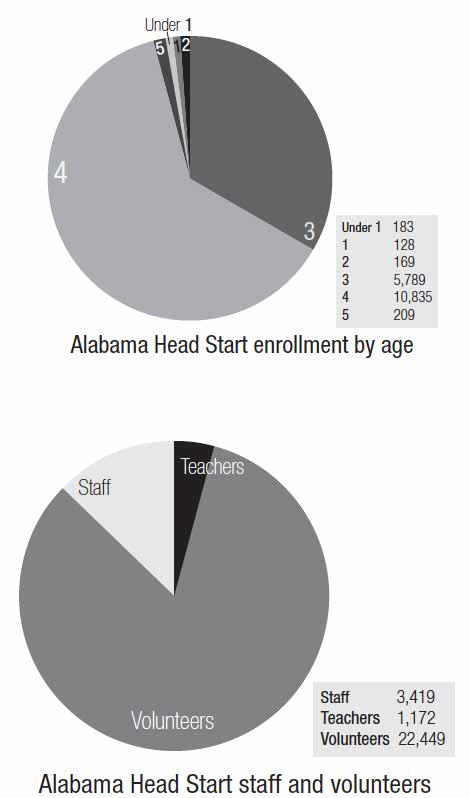Two University of Alabama professors were awarded a $2.2 million grant to expand the Head Start preschool program for children in West Alabama.
Head Start provides enrichment for preschool-aged children of low-income families. Caroline Boxmeyer, a clinical psychologist and assistant professor of psychiatry and behavioral medicine, and Ansley Gilpin, an assistant professor of developmental science, began piloting a program called PATHS (Promoting Alternative Thinking Strategies) in 2011, which incorporated resources and education for parents into the existing Head Start curriculum. They applied for and received a grant from the Department of Health and Human Services’ Administration for Children and Families, which is allowing them to expand the program.
Boxmeyer said the goal of PATHS is to involve parents in the curriculum their children are being taught and to give them resources to help reinforce that learning.
“The goals of the grant mechanism that we responded to were actually to support family wellness in a variety of ways including parent mental health, as well as their basic ability to find and hold a job and also manage the finances for the family,” Boxmeyer said. “We are planning to implement the program that we did with the pilot and then enhance it with additional job skills and financial management training for the parents as well as for the family’s well-being.”
Gilpin said one of the challenges was making sure the program was as effective as possible in a classroom setting.
“We are working with the administrators and the teachers and the parents that Head Start has in something called a Parent Involvement Committee, kind of like a PTA, and they are really helping us make sure that it’s as tailored to individual schools as it can be and as practical and useful as it can be,” Gilpin said.
The classroom program is intended to create a positive classroom environment for these children, who are learning to articulate and process high-emotion events with other children.
“The goal is to first of all create an environment where they can communicate about their needs and give them very concrete, specific steps of how to go about that,” Gilpin said. “It gives the children a feelings vocabulary, so they learn to name and label a range of specific feelings.”
Boxmeyer said the Head Start program was an important part of helping the community and the children deal with recovering from the April 27, 2011, tornado.
“The Alberta Head Start is the program where we first initiated the pilot, and that structure actually held up through the storm,” Boxmeyer said. “Being able to stay in school and stay on a regular routine is one of the protective factors for children recovering from a trauma like that, so that was immensely beneficial. But many of the families were affected. It’s possible that the expanded program with this new grant will enable us to work with parents who have lost a job or who are having difficulty finding a job as a result of the tornado damage.”
Boxmeyer and Gilpin are working with groups from the University of Oregon, University of Southern California and Northwestern University to expand Head Start on a national level.
“It’s great because this could possibly have some changes that might be more widespread at the end,” Gilpin said. “So it gives Alabama a really neat opportunity to make a difference, not only directly, but also nationally.”
The grant money was implemented in October of this year and runs through September 2018. The first year will be a planning year, but Boxmeyer and Gilpin will begin to implement the program in the 2014-15 school year.









